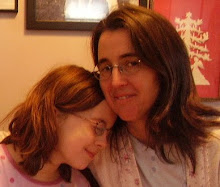It’s an interesting dilemma, seeing both the power and the risk inherent in today’s vast array of attention-drawing technologies. Columnist Ruth Marcus recently diagnosed herself in my local paper, the Concord Monitor, as having a “bad case of the shallows,” in a June 9th column headlined as Cyberspace Dunderheads. She tells us that’s actually the title of Nicholas Carr’s new book on the impact of modern communication technologies on the brain. I still need to check out the book, but the concept is familiar. You know that habit you may have, as you work at your computer, that causes you to just skate over information, constantly clicking to the next link to scan, and then move on? Never really landing and immersing? Maybe even noticing this bleeding into time away from the screen, say when you arrive home, now away from your work screen. Maybe you spend a little time glancing at the mail, not really tending to it before this little chore or that amusement draws you here, and then there, and now over here... Does anyone else recognize themselves in this dilemma? I found myself right there with Marcus.
Fortunately, there’s another technology that’s been developed to counter this malady. It’s called mindfulness, or meditation, and it’s been in development for centuries. It’s nice to know it’s been around that long: at least we can feel a little less disadvantaged, realizing that the challenge of cultivating control over attention is not new to these times. With this age-old technology, we use the most sophisticated and flexible hardware/software gadget we have, the body/mind, and we work with its’ capabilities to develop awareness.
Are you willing to see your mind, the neural network that includes your brain and all the neurology that runs through every part of the body, as a technology? Meditators do see it this way, and they work with their own hardware/software gadget to develop their attentional capacity and skills. I am such a practitioner. We meditators go to all this trouble in order to live out the quality of life we choose for ourselves, rather than having external forces like Blackberries and Facebook unconsciously drive our experience. The basic premise of mindfulness is that attention can be trained, that we can train ourselves to take in the facts of the present moment and work with these facts skillfully. When we are able to attend to present moment experience in this way, we can benefit by a number of valuable effects of this practice. We are able to make better choices about how to use our time, we become better able to interact with ourselves and the world effectively and kindly, and we can learn how to take care of the things that need taking care of right way, rather than allowing them to accumulate into bigger problems later on.
How is it that just paying attention to present moment experience makes all of this possible? Look at the challenge mentioned by Ruth Marcus. She describes the way she is now using computer and communication technologies to do her job. She talks about “spending hours skittering across the virtual surface of the web,” which prevents her from focusing properly on any one presentation of information. She even points us to studies and to Carr’s book (which I have not read but certainly plan to), which explain how this type of interaction with technology is teaching our brains to feel this as normal.
From personal experience, I know exactly what she’s talking about. In the most recent corporate setting I worked in, most of the communication happened via e-mail, even though 95% of the conversations were taking place between people who work on the same floor. As an established meditator, what this experience showed me is how anxious-making this is. Trying to attend to multiple e-mail “conversations” to discern attitude, issues, level of severity, to glean what was important to me from the vast amount of chaff, this was subtly and sometimes not-so-subtly exhausting. Someone who practices present moment awareness is able to know the body tension, shortness of breath and the emotional discomfort that this kind of multi-tasking promotes, just as it’s happening. In fact, I’ve decided that multi-tasking is a harmful myth, at least for most people at today's work pace. You really can’t hold multiple tasks and conversations simultaneously in awareness. What you can do is give only a chopped up, partial, sub-standard version of your attentional capacity to each thing as you briefly turn to it. Does this sound like a way to work effectively? What I found in the situation I describe above was that is was tiring and ineffective, and having really seen this, I took some steps with my team to bring about better ways to share information and update each other.
I’d like to suggest that if you relate to this issue, you begin by turning your attention to this question: Is it valuable for me to cultivate attention so that I can place it fully where it is needed in any given moment, and thereby respond to each moment the best possible way? If you sense the answer is yes, I recommend that you move your attention now toward taking action to develop your own awareness in the direction you would like to see it go, rather than allowing today’s external technology to do that for you. Happy meditating!


